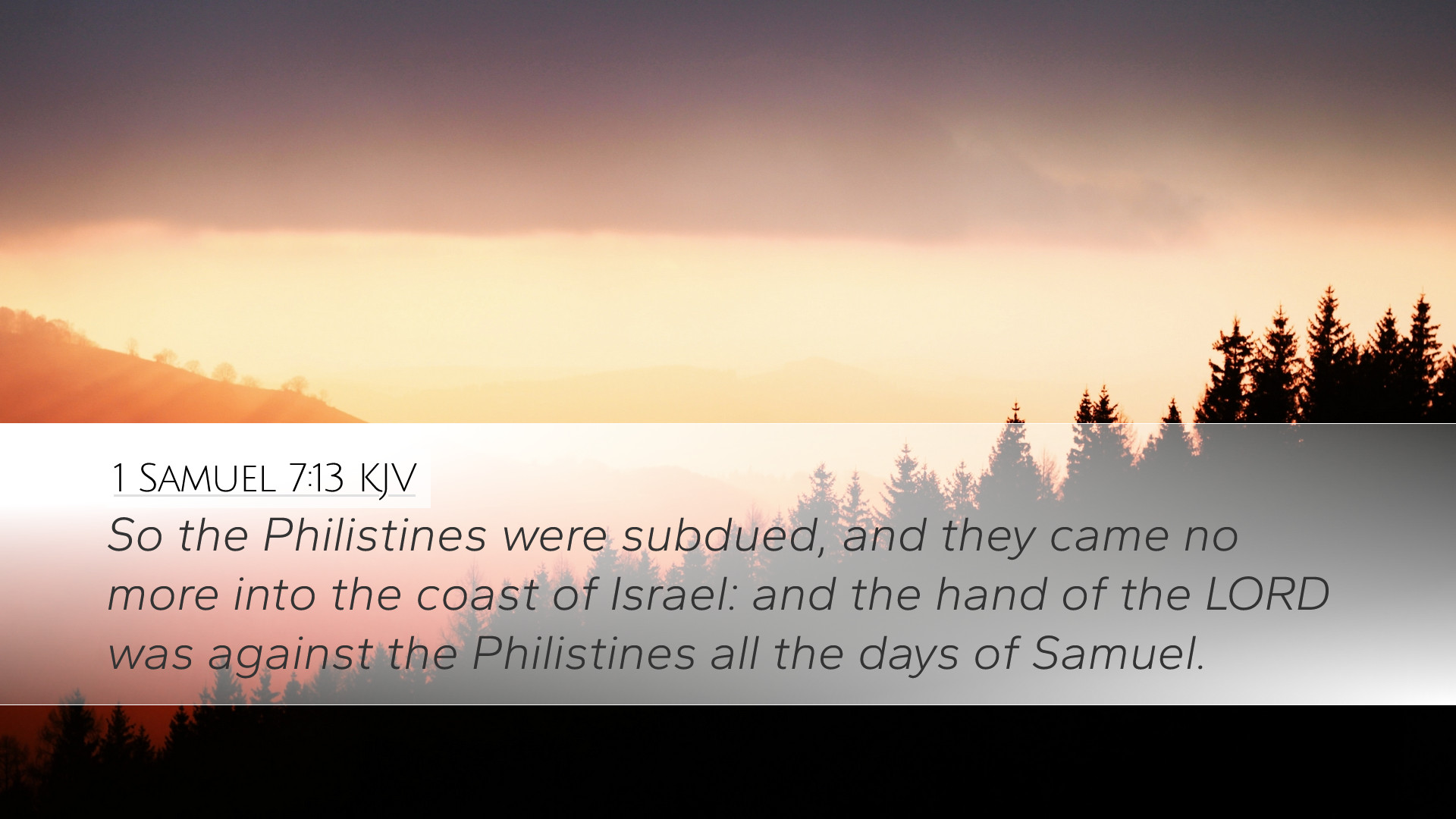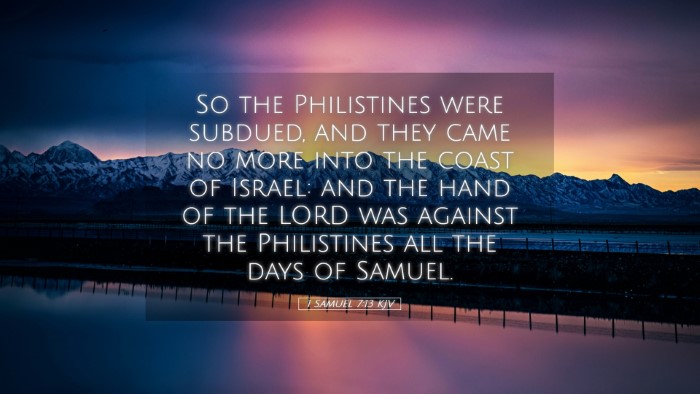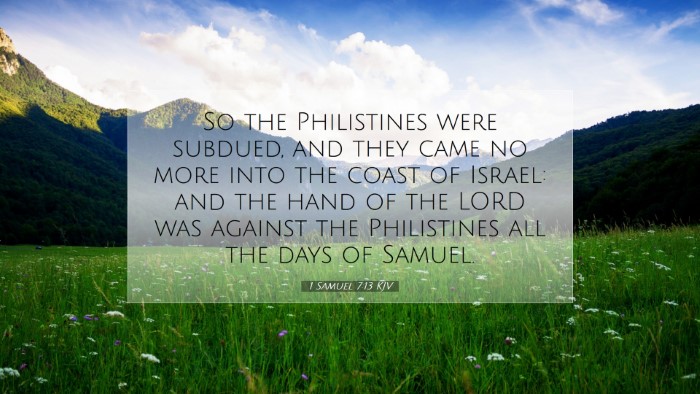Commentary on 1 Samuel 7:13
Verse: 1 Samuel 7:13
“So the Philistines were subdued and they came no more into the coast of Israel: and the hand of the Lord was against the Philistines all the days of Samuel.”
Introduction
The context of 1 Samuel 7:13 reflects a pivotal moment in the history of Israel, most specifically regarding their struggle against the Philistines. This verse encapsulates both a divine victory and a turning point for the nation under the leadership of Samuel. Through various commentaries, we gain insights into the theological implications, historical context, and spiritual lessons that arise from this scripture.
Theological Insights
The prevailing theme in this verse revolves around the sovereignty of God in the affairs of Israel. The verse asserts that the hand of the Lord was against the Philistines, illustrating God’s active involvement in protecting His people. This underscores the notion that divine intervention is essential for victory in the face of challenges.
Matthew Henry’s Interpretation
Matthew Henry emphasizes the significance of God’s power as the ultimate source of victory, stating that the subduing of the Philistines was not merely due to Samuel’s leadership but was a direct result of God’s will. He articulates that Samuel's role as a prophet was pivotal, as it was through his prayers and leadership that Israel sought return to God, leading to renewal and restoration.
Albert Barnes’ Perspective
Albert Barnes provides a detailed historical analysis of the conflicts between Israel and the Philistines, highlighting that this moment marked a definitive end to Philistine dominance over Israel. He notes that the verse illustrates a period of peace for Israel, emphasizing the transformative power of turning back to God through repentance and seeking His favor.
Adam Clarke’s Commentary
Adam Clarke discusses the figurative language found in this verse, suggesting that the expression "the hand of the Lord was against the Philistines" denotes a divine act of judgment. Clarke posits that this exemplifies how God contends with the enemies of His people and affirms the necessity of Israel's reliance on divine assistance for sustained deliverance and peace.
Historical Context
Understanding the historical backdrop of this verse is crucial. The Philistines were a long-standing adversary to Israel, characterized by warfare and oppression. 1 Samuel 7 depicts a significant transition from a period marked by the absence of strong leadership and spiritual lethargy to one where God raises up Samuel as a prophet and judge. This change fosters a national repentance, which aligns with God's covenant promises of protection and deliverance.
Spiritual Application
The implications of 1 Samuel 7:13 reach beyond its historical account, delivering profound spiritual lessons for today’s believers. The narrative invites individuals and communities to reflect on their relationship with God—highlighting the importance of repentance and seeking divine intervention in facing adversities.
- Faith in Divine Protection: Believers are reassured that God’s hand is actively involved in their lives, serving as a guardian against spiritual adversaries.
- Leadership and Accountability: The passage stresses the role of spiritual leadership in guiding communities towards renewed faith and commitment to God.
- The Power of Repentance: It emphasizes that a return to God through repentance can lead to restoration and peace, urging individuals to seek God earnestly.
Conclusion
1 Samuel 7:13 stands as a testament to the faithfulness of God and the importance of seeking His presence in times of trouble. The combined insights from Matthew Henry, Albert Barnes, and Adam Clarke reveal the rich layers of meaning embedded in this short verse while emphasizing the continual need for the faithful to rely on God's strength against all forms of opposition. For pastors, theologians, and scholars, this passage encourages a profound reflection on God's providence and the necessity of returning to Him in faith.


